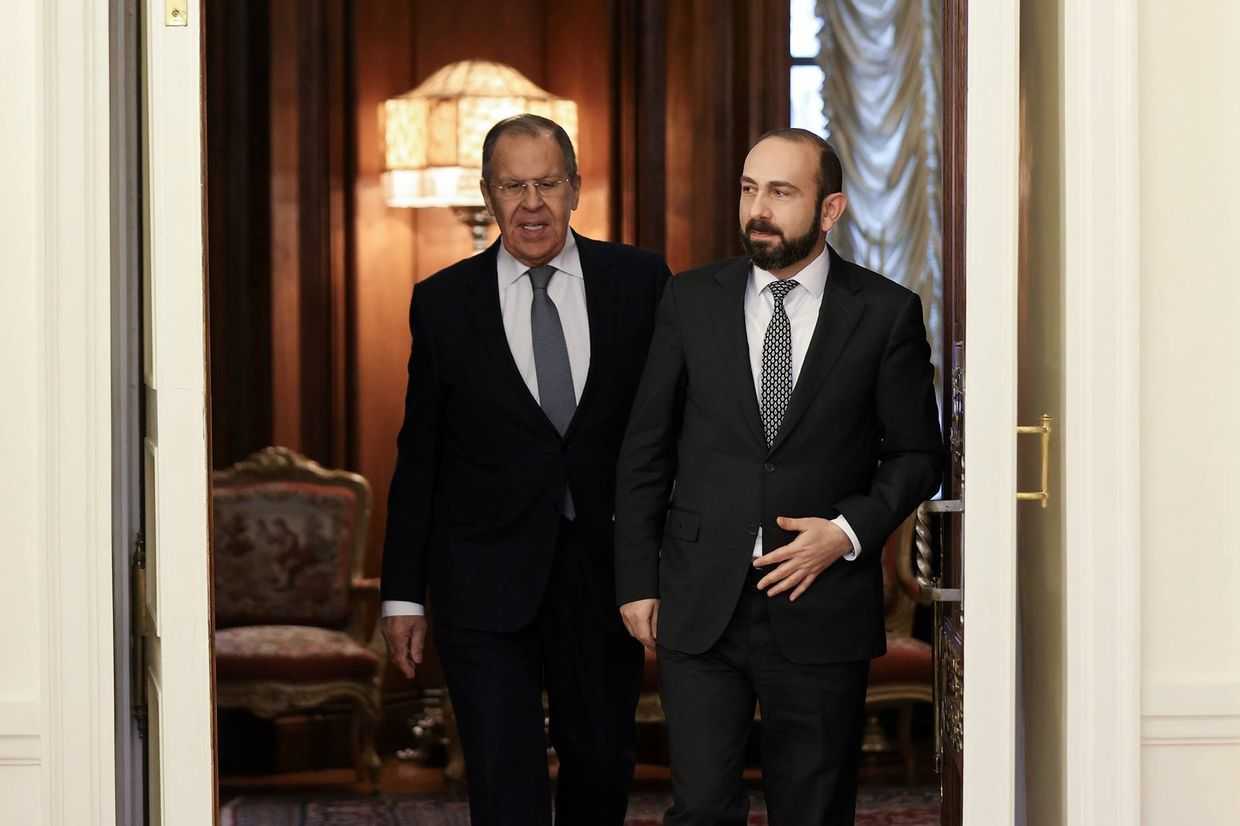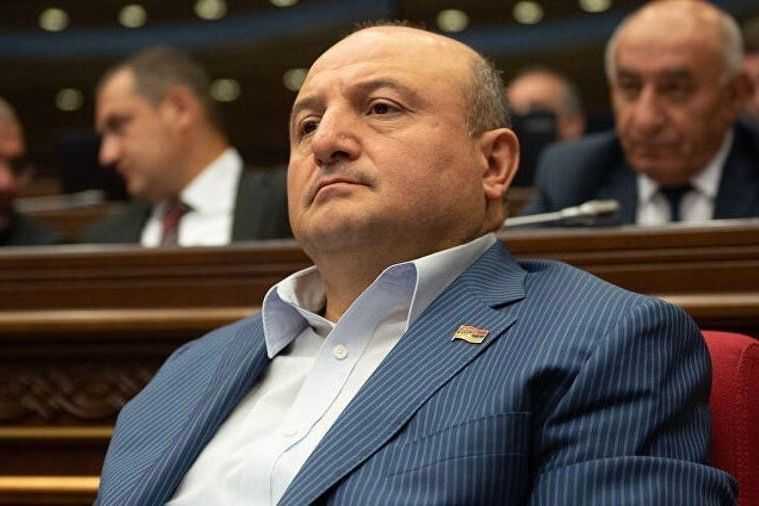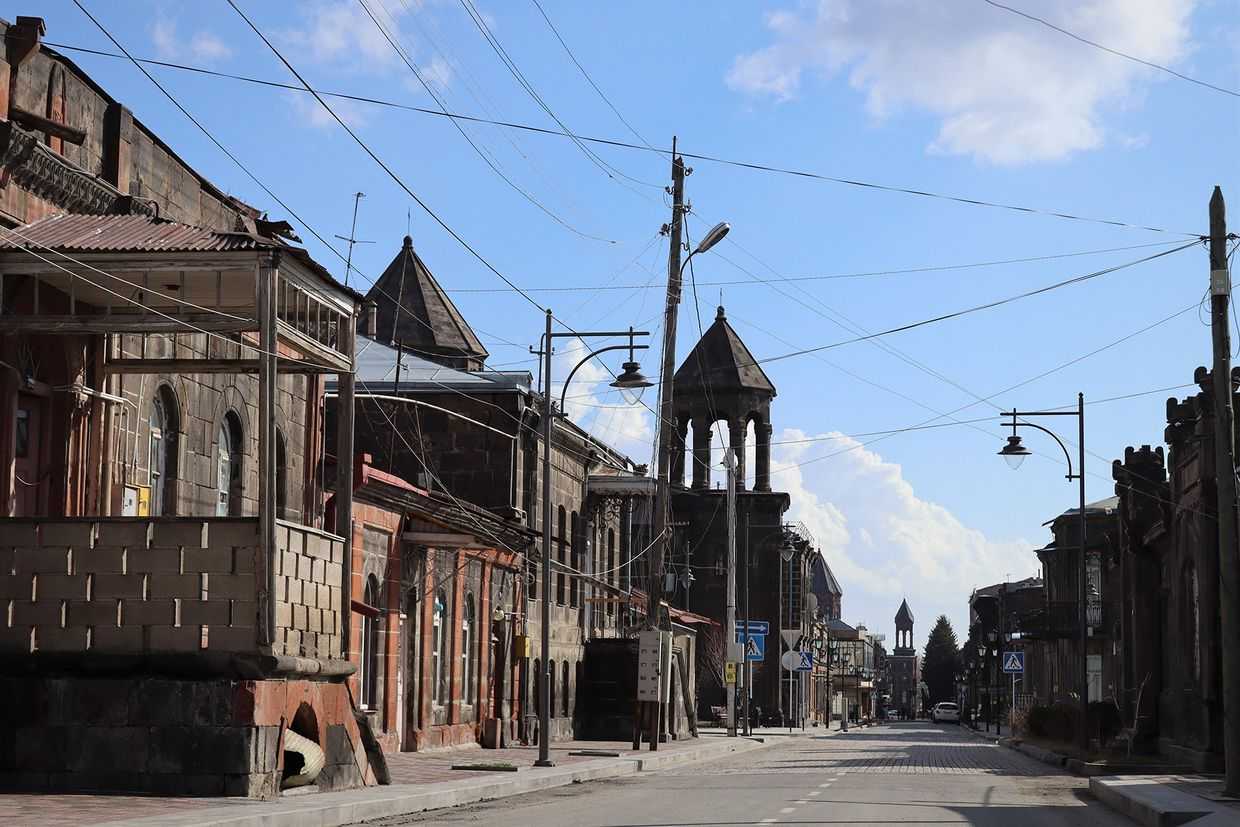Explainer | Who is Vardan Ghukasyan, Gyumri’s long-time mayor now facing corruption charges?
A long-time fixture in Gyumri’s political scene — Ghukasyan has emerged as a new government target ahead of the 2026 parliamentary elections.
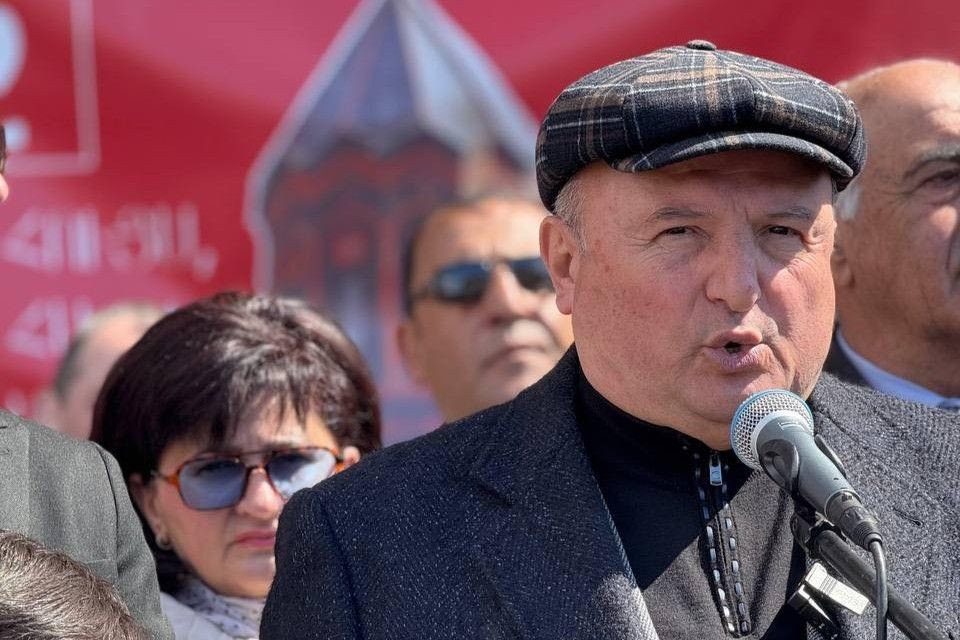
On Monday, Gyumri Mayor Vardan Ghukasyan was remanded to two months of pre-trial detention on corruption charges, deepening tensions between the government and Armenia’s second-largest city.
The arrest came after weeks of friction over local governance and follows a series of anti-corruption investigations that have targeted senior municipal figures across the country.
According to the Anti-Corruption Committee, Ghukasyan, along with Gyumri’s chief architect and six other individuals, was detained on suspicion of soliciting a bribe of ֏4 million ($10,000) from a local resident in exchange for falsifying documents to prevent the demolition of an unlawfully constructed building.

The committee also stated that Ghukasyan had ‘neither denied nor confirmed’ having held a conversation of the type captured in recordings obtained by investigators, and he ‘did not claim the voice in the recordings had been falsified or altered’, offering instead his own explanations of the context. The statement added that several individuals had given ‘confessional testimonies confirming the factual accuracy of data obtained through operative means’.
Investigators requested pre-trial detention for five of the eight detainees, including Ghukhasyan, which was granted. One other alleged briber was remanded to house arrest, while the rest of the detainees were released the remaining suspects pending further investigation. Several municipal officials have also been suspended from duty.
A familiar name in Gyumri politics
Born in 1961 in Leninakan (now Gyumri), Ghukasyan has been one of the city’s most recognisable and controversial figures for nearly three decades. A former businessperson and local power broker, he first rose to prominence in the 1990s before going on to serve as Gyumri’s mayor for three consecutive terms from 1999–2012.
During his tenure, Ghukasyan cultivated a reputation as both a populist figure and a symbol of Gyumri’s entrenched political patronage networks. Despite numerous corruption allegations over the years, Ghukasyan maintained local popularity, often presenting himself as a defender of the city’s post-earthquake recovery and its distinct political culture.
In 2017, Ghukasyan returned to national politics as an MP from the opposition Tsarukyan Alliance, later joining its successor, the Prosperous Armenia Party faction. Although his parliamentary career was brief, he remained vocal in local affairs and made a political comeback in 2025, winning the mayoral election once again, despite the ruling Civil Contract party’s attempts to keep its ally in the lead.
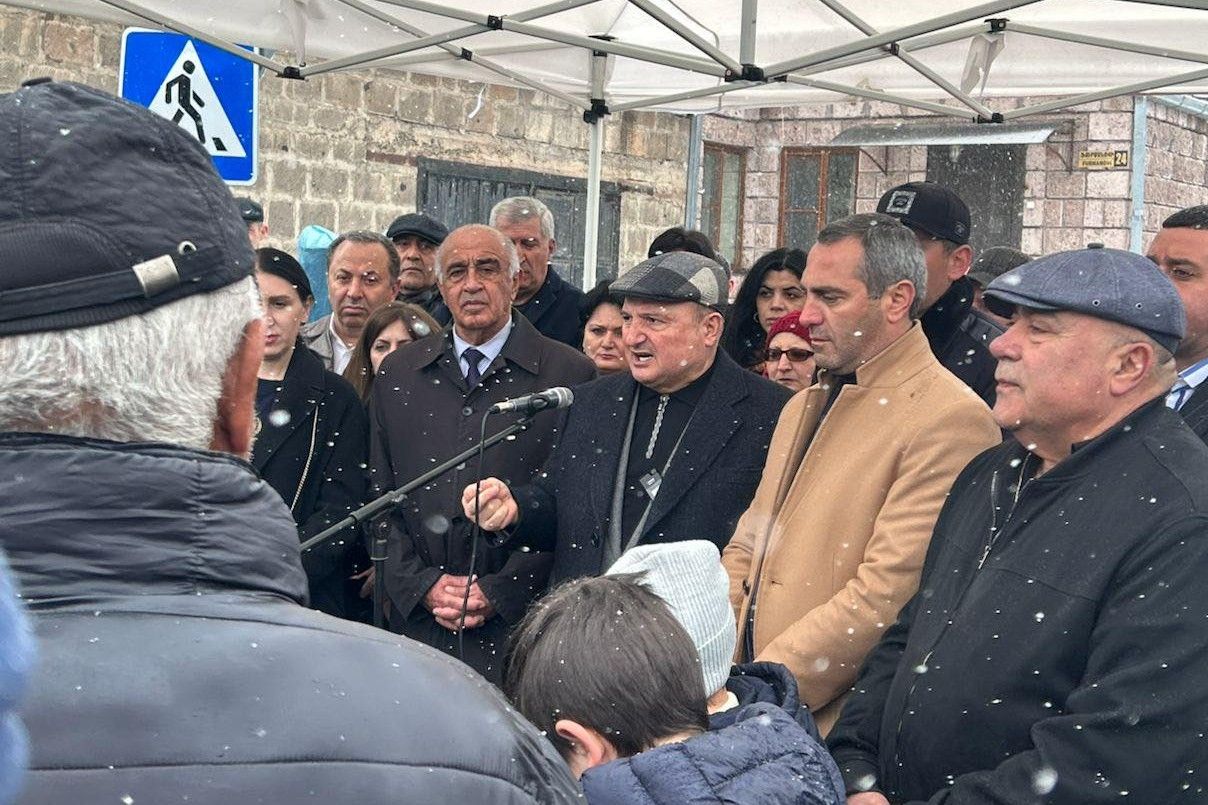
His new term in 2025 began under changing circumstances: a weakened local government system, tighter central oversight, and increasing friction between Yerevan and municipalities traditionally loyal to opposition-aligned business elites. Being a vocal critic of the Pashinyan government, Ghukasyan faced an imminent crackdown from the authorities.
A pattern of confrontations
While Ghukasyan’s supporters claim the criminal charges are purely politically motivated, this is not the first time his name has appeared in criminal proceedings.
In February 2025, ahead of the local elections in Gyumri, Ghukasyan was arrested on weapons charges. Previously, he faced criminal proceedings in 2013 for insults during a trial concerning the murder of his daughter’s fiancé.
He has also made headlines numerous times for his controversial statements.
In 2019, as an MP, he gained notoriety for his inflammatory anti-queer statements following a speech in parliament by Lilit Martiroysan, an Armenian transgender woman and activist.
‘Send [all the perverts] to Holland’, Ghukasyan said at the time. ‘We want […] females to be females and males to be males. You can’t mix female with male. It’s shameful’.
He made similar homophobic comments in March 2025, claiming that ‘If the Armenian Church ever marries homosexuals like in Europe, I say it loudly, then I will shoot that priest in the church’.
In April 2025, shortly after his re-election as Gyumri Mayor, he made headlines again by declaring his support for the idea of a ‘union state’ with Russia, remarks that drew criticism from pro-European voices. The remarks were also seen as politically damaging for the ruling Civil Contract party, as support for Ghukasyan’s beliefs were equated to a likely loss of support in the upcoming parliamentary elections.
Following this, the municipality came under fire again after broadcasting a song glorifying criminal subculture during a public event, sparking national outrage and prompting calls for Ghukasyan’s resignation.
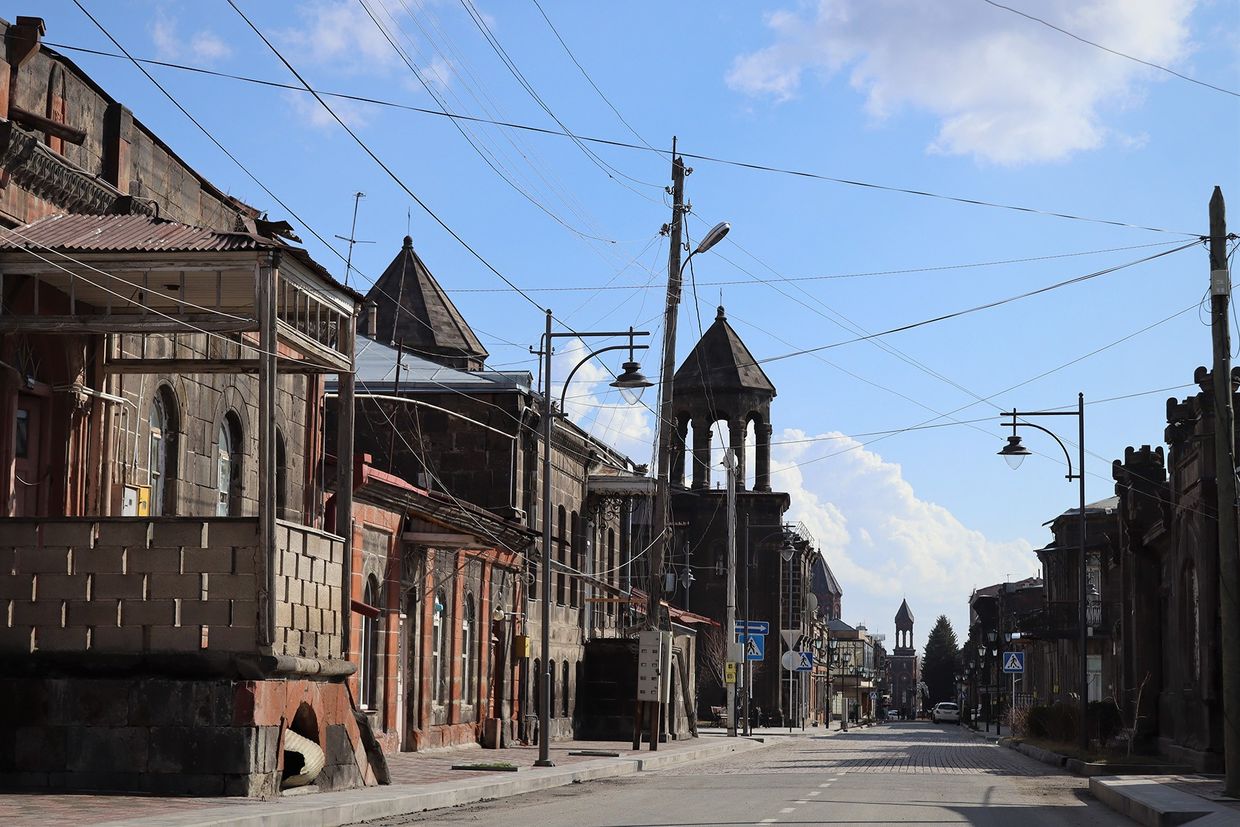
An anti-corruption drive or political recalibration?
The Anti-Corruption Committee has described the arrests as part of its routine enforcement work, stressing that evidence gathered through surveillance and witness testimony justified the detentions. Yet analysts and opposition figures have questioned whether the investigation also reflects growing pressure on local authorities viewed as disloyal to Yerevan.
Since 2023, Armenia’s anti-corruption campaign has intensified, with several high-profile arrests targeting regional governors and municipal leaders. The government has portrayed the campaign as a long-delayed effort to dismantle the informal systems of privilege and impunity inherited from previous administrations. However, critics argue that the selective pace of prosecutions suggests an attempt to consolidate central control rather than purely to ensure accountability.
In the Armenian diaspora, Ghukasyan’s arrest has been widely seen as part of a wider crackdown by the Pashinyan government on the opposition, including on Church leaders. Alex Galitsky, the head of Policy at the Armenian National Committee of America (ANCA), reacted to the arrest by calling Pashinyan a ‘tinpot dictator’. ‘Pashinyan is making an example of his opposition — using excessive force to intimidate and suppress critics’, he said.
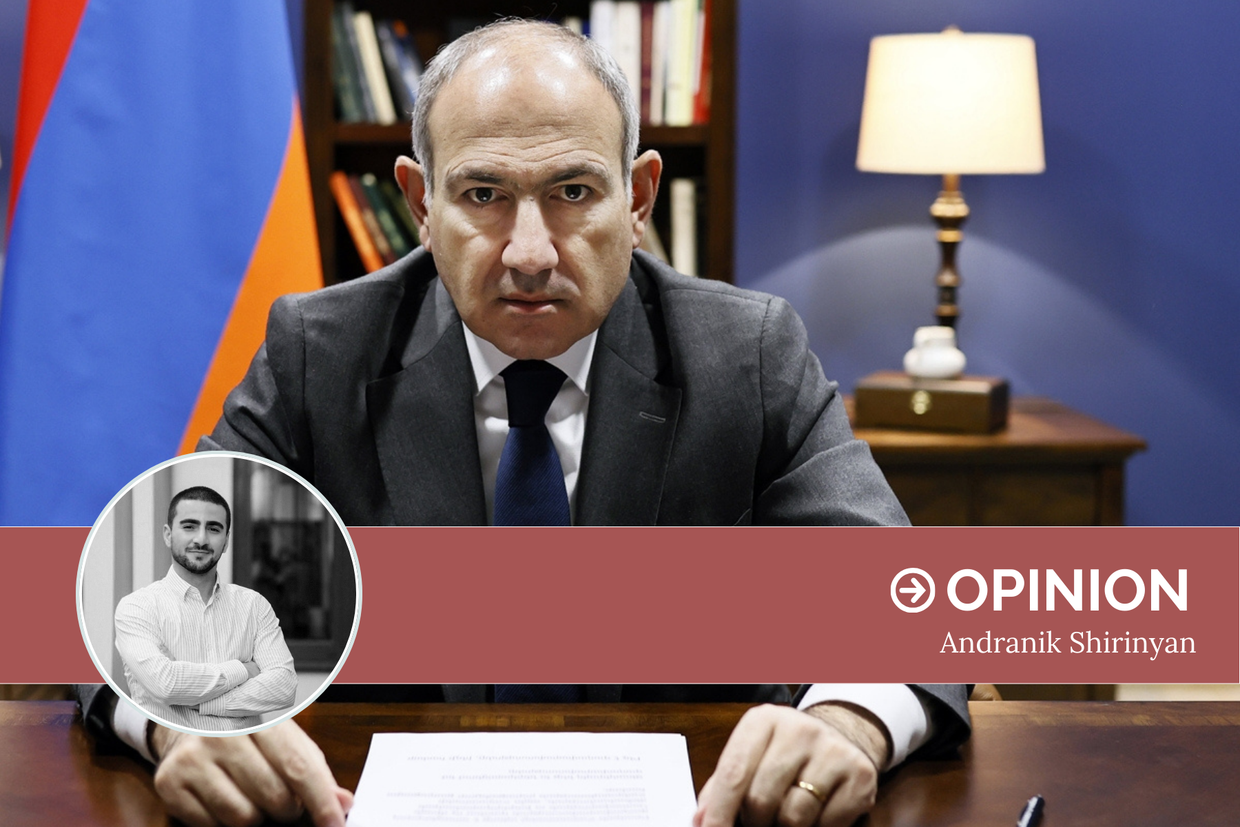
Galitsky also wrote that the government had dispatched military forces to arrest the Gyumri Mayor, yet the picture he shared showed special security forces.
Ghukasyan’s arrest follows an increasingly visible standoff between Gyumri’s administration and national institutions. Over the past year, local activists have accused city officials of mismanagement and favouritism in construction permits and municipal contracts, while Ghukasyan and his allies have accused the central government of neglecting regional development and eroding municipal autonomy.
From a political perspective, the defeat of the ruling party in the country’s second-largest city, which hosts a Russian military base, to a communist mayor was seen as an indicator of a loss of public trust and the anticipated challenges in the upcoming 2026 parliamentary elections.
For now, Ghukasyan remains in pre-trial detention facing charges that could carry a prison term of up to ten years if convicted. The Anti-Corruption Committee has stated that the investigation is ongoing.
This article was translated into Russian and republished by our partner Jnews.




